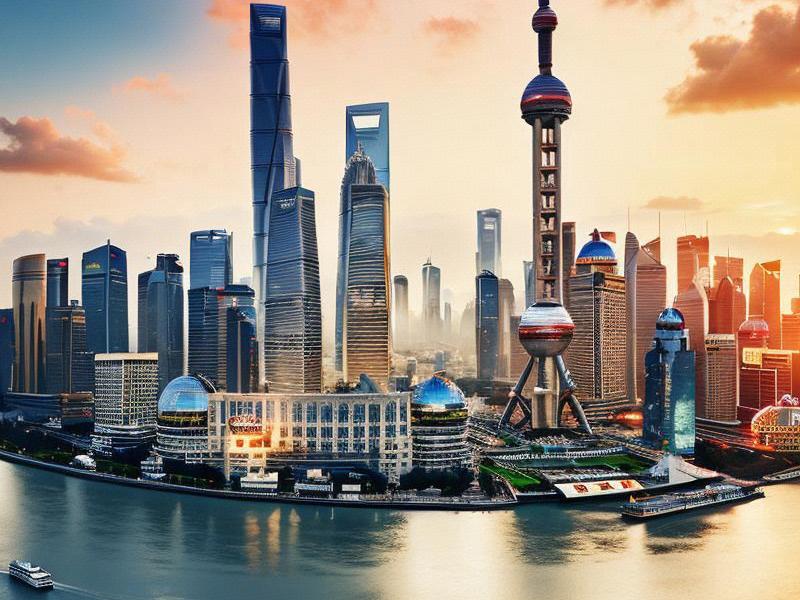This article delves into the multifaceted character of Shanghai, exploring its role as a global financial hub, a center for cultural exchange, and a city that seamlessly blends tradition with modernity. It highlights the city's rapid urban development, its contributions to global trade, and the vibrant cultural scene that makes Shanghai a unique destination.

Shanghai, often referred to as the "Pearl of the Orient," stands as a testament to China's rapid modernization and its embrace of globalization. This dynamic metropolis, with a population exceeding 24 million, is not only the largest city in China but also one of the most influential in the world. Its skyline, a blend of historic architecture and cutting-edge skyscrapers, is a visual representation of its past and present.
The Bund, a historic waterfront area, offers a glimpse into Shanghai's colonial past. Here, the juxtaposition of 19th-century European-style buildings against the backdorpof the futuristic skyline of Pudong is nothing short of mesmerizing. The Bund's promenade is a popular spot for both locals and tourists, who come to admire the view of the Huangpu River and the iconic Oriental Pearl Tower.
Pudong, on the other hand, symbolizes Shanghai's economic prowess and future aspirations. Home to the world's second-tallest building, the Shanghai Tower, and the Jin Mao Tower, Pudong is a hub for finance, business, and innovation. The Lujiazui Financial District, with its cluster of skyscrapers, is the nerve center of China's financial markets.
Shanghai's rapid urban development is not without its challenges. The city has made significant strides in addressing issues such as traffic congestion, air pollution, and housing shortages. Initiatives like the expansion of its metro system, the promotion of green spaces, and the construction of affordable housing are part of Shanghai's strategy to crteeaa more sustainable and livable city.
夜上海419论坛 The city's economy is diverse, with key sectors including finance, trade, manufacturing, and technology. Shanghai is a major player in global trade, with the Port of Shanghai being the busiest container port in the world. The city's free trade zones and innovative business environment attract numerous multinational corporations and startups.
Culturally, Shanghai is a melting pot of traditions and modernity. It is known for its vibrant art scene, with galleries, theaters, and music venues showcasing a wide range of artistic expressions. The city's culinary scene is equally diverse, offering everything from traditional Shanghainese cuisine to international flavors. Iconic dishes like Xiaolongbao (soup dumplings) and Shengjianbao (pan-fried buns) are must-tries for food enthusiasts.
Shanghai's role in global cultural exchange is significant. The city hosts numerous international festivals, exhibitions, and events, attracting visitors from around the world. The Shanghai International Film Festival, one of the oldest and most prestigious film festivals in Asia, is a prime example of the city's commitment to cultural exchange.
Education is another area where Shanghai excels. The city is home to some of China's top universities, including Fudan University and Tongji University, which attract students and scholars from across the globe. Shanghai's education system is known for its emphasis on innovation and international collaboration.
上海花千坊419
The city's government has been proactive in promoting sustainable development and improving the quality of life for its residents. Initiatives like the construction of the Zhangjiang Hi-Tech Park, which focuses on high-tech industries and innovation, and the development of the Shanghai International Automobile City, highlight the city's commitment to economic diversification and technological advancement.
Shanghai's infrastructure continues to evolve to meet the demands of its growing population and economy. The city's metro system, one of the busiest in the world, is constantly expanding to provide efficient transportation for its residents. The Hongqiao Transportation Hub, a major intermodal transport complex, connects Shanghai with other parts of China and the world.
The city's efforts to preserve its cultural heritage are also noteworthy. Historic sites like the Yu Garden, a classical Chinese garden, and the Yuyuan Bazaar, a traditional shopping area, are well-preserved and offer visitors a glimpse into Shanghai's rich history. The Shanghai Museum, with its extensive collection of Chinese art, is a cultural landmark that attracts millions of visitors annually.
上海龙凤419 Shanghai's position as a global leader is not without its challenges. The city faces issues such as income inequality, environmental sustainability, and the need for continued innovation to maintain its competitive edge. However, Shanghai's resilience and adaptability have been key to its success.
The future of Shanghai looks promising, with the city continuing to evolve as a hub for innovation, culture, and global influence. The Chinese government's Vision 2035 plan envisions Shanghai as a global center for finance, trade, science and technology, culture, and tourism. The city's commitment to sustainable development and improving the quality of life for its residents will be crucial in achieving these goals.
In conclusion, Shanghai is a city that embodies the spirit of China's rapid modernization and its embrace of globalization. Its blend of historic charm and modern innovation, coupled with its economic prowess and cultural vibrancy, makes it a unique and dynamic metropolis. As Shanghai continues to grow and evolve, it remains a beacon of progress and a symbol of China's aspirations on the global stage.